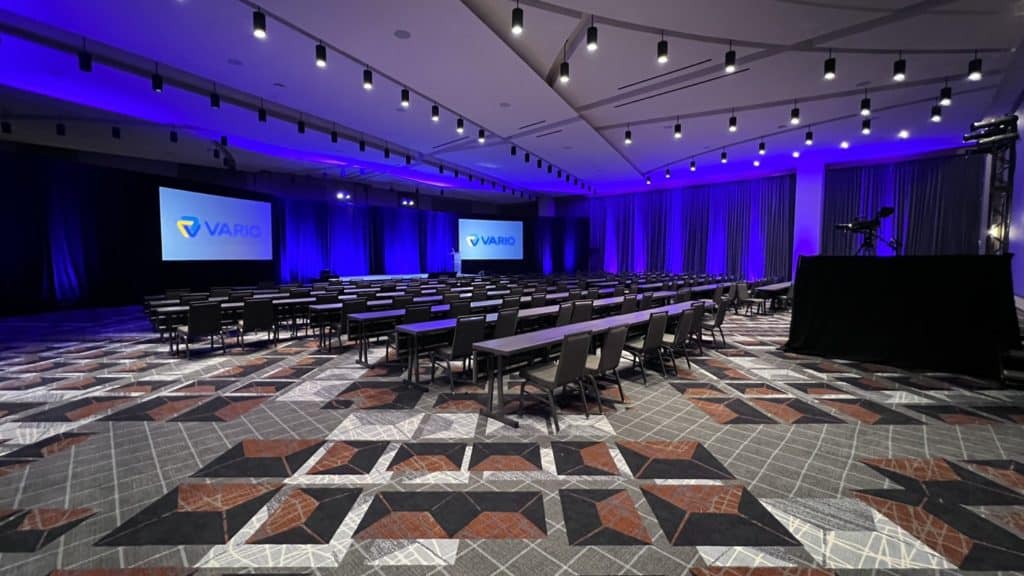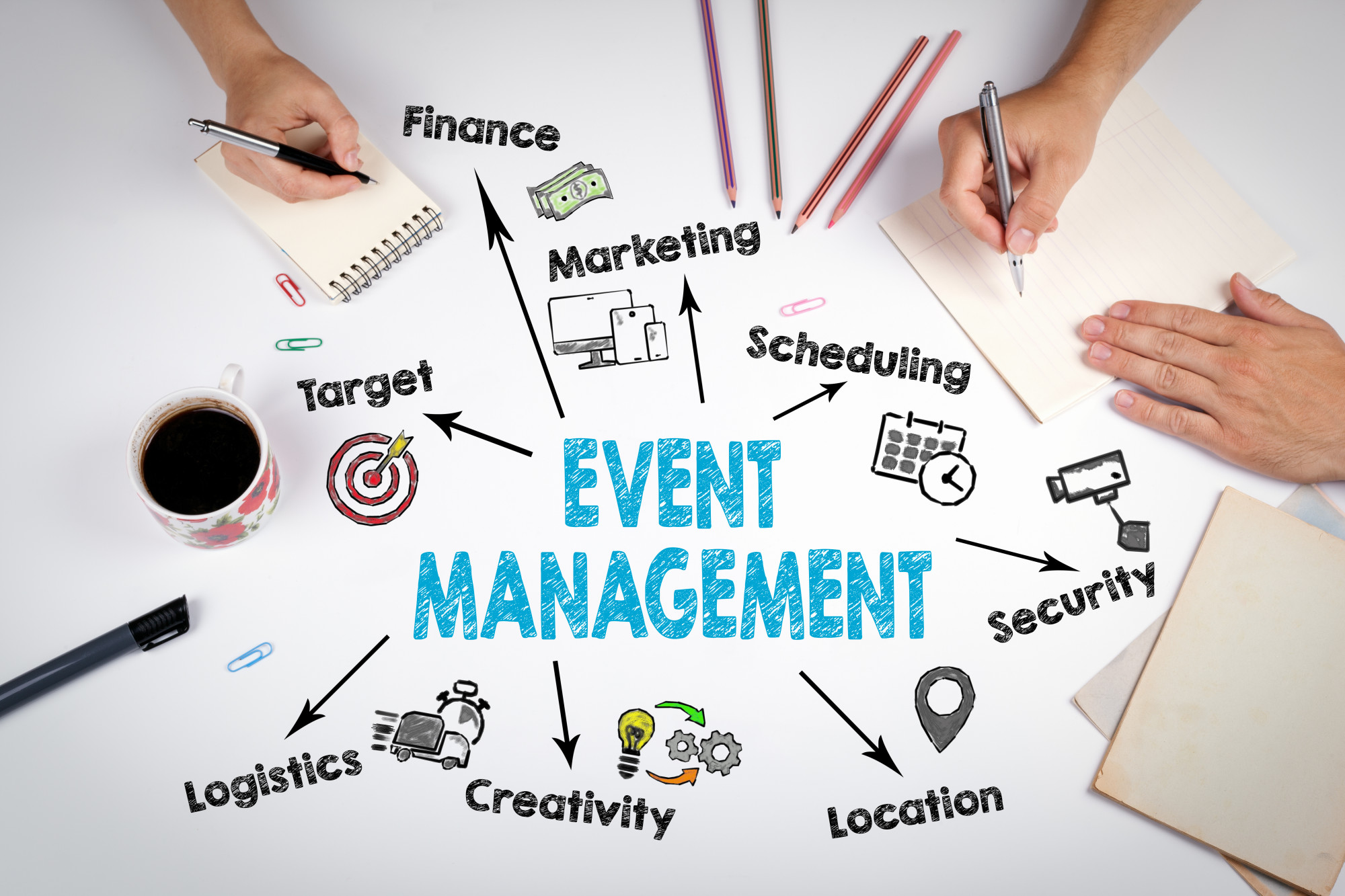Charlotte event companies: Venue selection criteria for big gatherings
Wiki Article
A Deep Study How Event Management Functions to Create Remarkable Experiences
Event management is a complex technique that combines numerous components to craft remarkable experiences. It needs a clear understanding of the event's function and target market. Organizers have to navigate budgeting, logistics, and advertising to ensure a smooth execution. Each part plays an essential function in attaining the desired effect. Nevertheless, the journey does not end with the event itself. There are insights to discover that can shape future ventures.The Basics of Event Management
Effective event management includes a variety of essential principles that direct the preparation and execution of effective events. At its core, it involves recognizing the event's function, audience, and preferred results. Recognizing the target market is important, as it notifies decisions connected to content, advertising and marketing, and logistics.Budgeting is another basic facet, guaranteeing that sources are alloted successfully while satisfying the event's objectives. This consists of preparation for unpredicted expenses that might occur.
Time management plays a vital function, as event supervisors should establish a comprehensive timeline to work with various jobs and landmarks.
Furthermore, efficient interaction among stakeholders, vendors, and group participants is important to assure positioning and prevent misunderstandings.
Danger management must be considered, with backup plans in area to attend to potential obstacles, thus enhancing the overall experience for guests and guaranteeing a seamless execution of the event.
Trick Functions in Event Preparation
In event preparation, understanding essential functions is crucial for successful execution. The event coordinator is in charge of supervising logistics and making sure all elements align with the vision. In addition, efficient vendor management is crucial for preserving top quality and fostering solid partnerships throughout the planning procedure.Event Coordinator Duties
An occasion planner coordinates the complicated elements of event planning, making certain seamless execution from conception to conclusion. They are in charge of conceiving the event style, establishing budget plans, and creating timelines to maintain the job on track. Control with stakeholders, consisting of clients, place supervisors, and volunteers, is necessary to align expectations and facilitate communication. The coordinator additionally manages logistics, such as food catering, transport, and technology requires, guaranteeing all components work harmoniously. They perform website brows through, handle schedules, and troubleshoot concerns that may arise during the event. Post-event, the coordinator examines the event's success, collecting feedback and analyzing end results to educate future jobs. This diverse function calls for strong business abilities, interest to information, and reliable social interaction.Supplier Management Essentials
Guiding via the landscape of supplier management is essential for effective event preparation. Effective vendor management includes determining, choosing, and collaborating distributors that give vital solutions, such as catering, audiovisual support, and design. Event organizers need to keep strong interaction with vendors to guarantee that all aspects align with the event's vision. Secret functions include the vendor supervisor, who supervises contracts and arrangements, and the logistics organizer, in charge of on-site configuration and execution. It's imperative to establish clear expectations and timelines, promoting a collaborative atmosphere that improves the general experience. By focusing on these elements, event organizers can navigate possible difficulties, making sure that every information contributes to a seamless and memorable event.Crafting a Vision: Concept Advancement

As soon as a vision is established, it becomes necessary to equate it into workable components. This consists of specifying the ambience, picking ideal locations, and establishing the event's style. Collaborating with stakeholders, consisting of enrollers and companions, further refines the principle, making sure that all celebrations share a linked understanding of the event's purpose. Eventually, a well-developed vision not only boosts attendee engagement but likewise sets the phase for memorable experiences that reverberate long after the event concludes.
Budgeting and Resource Appropriation
With a clear vision in area, the following action in event management includes careful budgeting and source allotment. This vital stage assurances that all required components are funded and lined up with the event's goals. Event supervisors begin by estimating costs related to place selection, food catering, amusement, and advertising and marketing. They develop a detailed budget plan that details each category, permitting transparency and accountability.Resource allocation expands beyond finances; it additionally incorporates human sources. Determining team functions, duties, and timelines is important to assure performance. Event managers must likewise take into consideration contingencies for unexpected expenditures or adjustments in scope, developing a barrier within the spending plan.
Furthermore, focusing on costs on elements that improve guest experiences is important. By strategically designating resources, event managers optimize impact while preserving financial control. This disciplined method not only promotes successful occasions but additionally constructs reputation and count on with stakeholders and individuals.
Logistics: The Backbone of Event Implementation
While budgeting prepares for an occasion, logistics offer as its foundation, ensuring that every aspect is carried out efficiently and effectively. charlotte event companies. This encompasses a vast array of tasks, including location selection, transportation arrangements, and tools purchase. Efficient logistics management requires careful preparation and sychronisation to ensure that all elements line up go to this site with the event's timeline and goalsKey components of logistics include inventory management, where supplies and products are tracked to avoid shortages, and staffing, which entails recruiting and training personnel to manage different tasks. Interaction is likewise vital, as it helps with cooperation among vendors, sponsors, and the event group.

Advertising And Marketing and Promo Methods
Effective advertising and marketing and promotion approaches are necessary for making the most of attendance and involvement at an event, as they create rate of interest and excitement among possible individuals. Event supervisors use a mix of standard and electronic marketing techniques to reach their target market. Social media platforms, email projects, and targeted ads are frequently utilized to develop buzz and foster community communication. Cooperations with influencers or sector leaders can boost trustworthiness, while engaging web content such as video clips and reviews can resonate with prospective participants.Additionally, leveraging event-specific hashtags and developing shareable graphics motivates organic promo amongst participants. Early riser ticket offers and special promos can incentivize enrollment, in addition increasing interest. A well-designed internet site that offers very easy navigation and clear details regarding the event can boost the user experience. By executing these advertising and promotion strategies, event supervisors can assure greater exposure and inevitably produce an unforgettable experience for all individuals.

Gauging Success: Comments and Assessment
Success in event management rests on robust responses and evaluation systems. These processes are crucial for establishing the performance of an event and recognizing locations for improvement. By gathering input from attendees, organizers can analyze contentment levels, recognize preferences, and determine total effect. Studies and interviews act as important tools for collecting quantitative and qualitative information, permitting thorough evaluation.In addition, examining essential performance indicators (KPIs) such as participation rates, involvement degrees, and roi (ROI) offers a more clear photo of event success. Post-event debriefing sessions with the planning group likewise contribute understandings, cultivating a society visit this site of continuous improvement.
Eventually, a methodical approach to responses and analysis not just improves future occasions yet also reinforces relationships with stakeholders. By implementing these approaches, event supervisors can develop unforgettable experiences that reverberate with individuals and drive continuous involvement.
Often Asked Concerns
Exactly How Do Event Supervisors Handle Unforeseen Obstacles Throughout an Event?
Event supervisors deal with unanticipated difficulties by remaining calmness, examining the scenario, and implementing backup strategies - charlotte event companies. They communicate effectively with their group, adjust promptly, and focus on services to guarantee the event continues efficiently and successfullyWhat Technology Devices Are Important for Modern Event Management?
Vital innovation devices for modern-day event management include event registration software program, task management applications, participant interaction systems, and analytics devices. These sources enhance processes, enhance communication, and enhance general event experiences for organizers and individuals alike.How Do Cultural Differences Influence Event Planning and Execution?
Social differences greatly influence event preparation and execution. They impact styles, custom-mades, communication styles, and assumptions, demanding tailored approaches to assure inclusivity and respect, ultimately forming the overall experience and success of the event.What Are the Ethical Considerations in Event Management?
Honest considerations in event management incorporate transparency, sustainability, social sensitivity, and inclusivity. Organizers should focus on fairness, regard diverse target markets, lessen ecological impact, and warranty accessibility to develop liable and unforgettable experiences for all individuals.Exactly How Can Sustainability Be Integrated Into Event Preparation?
Sustainability can be integrated into event planning by making use of environmentally friendly products, reducing waste, sourcing neighborhood suppliers, implementing carbon countered programs, and promoting electronic solutions to lower paper use, thereby improving environmental consciousness within the event's structure.Report this wiki page